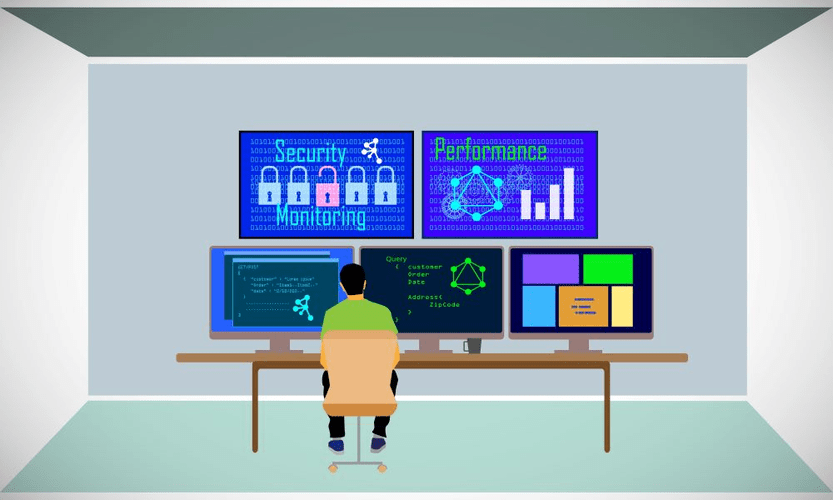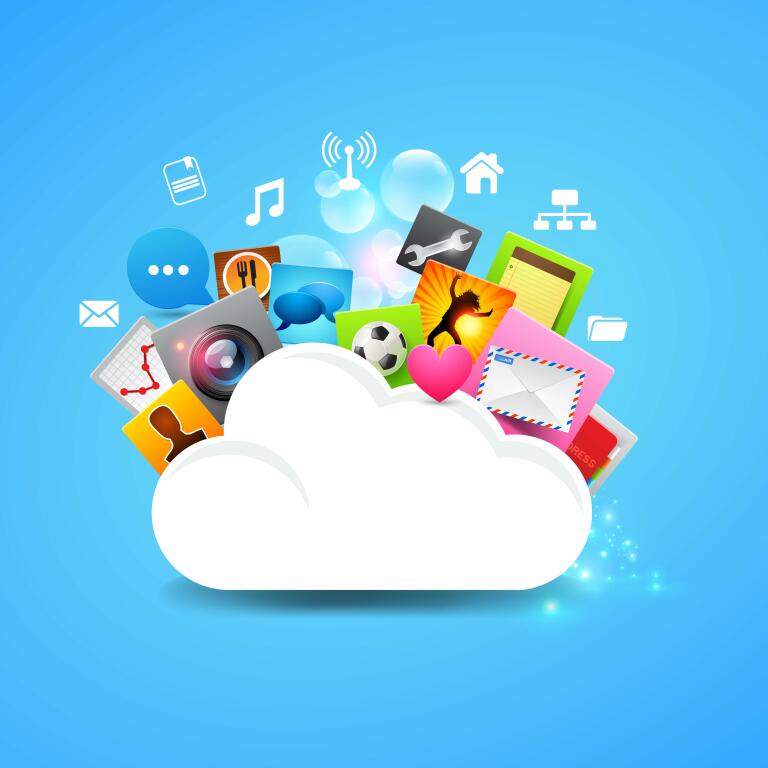Content
If you’re still not sure which is right for your business, check out whether there are free trials with your top CRM options. While they’ve put a lot of effort into making their mobile web version as great as possible, some users still prefer a dedicated app which they do not have. Once one gets used to the minimal features and their simplicity, some might crave added tools with more complex functions.
They have dedicated products for sales, as well as marketing, service and other departments. The major reasons are simplicity of set up, ease of use, lower costs, and less updating and servicing. What’s more, cloud based CRMs are accessible from any device, and are therefore ideal for teams who collaborate even remotely. Cloud based CRM is a customer relationship management system that depends more on an internet connection than on downloading software on-premise, that is, it is a cloud computing set up. Cloud based customer relationship management is much more popular than on-site SaaS these days.
What Can Web Based Crm Software Be Used For?
Cloud CRM applications aren’t heavy systems you need to install and run on your own expensive on-premise CRM servers. This means you don’t have to employ IT specialists full-time, or pay to keep the system up-to-date and free of bugs. When it comes to assessing the effectiveness of a system to manage customer engagement, there are some important features that will support better business outcomes.

The flexible, agile nature of cloud-based systems makes them perfect for businesses of any size. Users can upgrade anytime for more storage and bandwidth based on their need and thus improves the flexibility to improve business productivity and efficiency. Bengur Bryan, an investment bank based in Baltimore, Maryland, has selected DealCloud to better manage its relationships and centralize the flow of information and reporting across the business. The firm provides merger and acquisition advice, private placements of equity and debt, and financial advisory services. DealCloud helps your firm meet your users where they are — using… Manage all customer engagement channels, including email, phone, and social media, from a single platform.
You’ll have a variety of customization options like multi-currency and multilingual support, custom fields, custom sales activities for your team, and even contact lifecycle stages. If you want something that’s easy to use and customize, Freshsales is for you. With an on-premises CRM solution, access to new functionality can be a long, drawn-out, and expensive process. Also, sophisticated AI-based technology—to support virtual assistants, chatbots, next-best recommendations, and predictive analytics—will not be available.
The world’s changed a lot in the last couple of years, and your business has likely changed with it. Communication, in particular, has seen massive upheavals with salesforces adopting hybrid work models and many customers still limiting their in-person interactions. Digital communications channels have replaced traditional ones, and there’s no going back.
What Is Cloud
Cloud-based applications allow organizations with limited IT infrastructure not to get left behind. Since the CRM provider is responsible for all the updates and maintenance, there is no requirement for an in-house IT team to manage the software. CRM applications are key to delivering satisfactory customer experiences and scaling the business. Do they need to share customer contact updates and notes with each other? Keeping these in mind while you consider the features each platform offers will help you find something that offers the right functionality at the right price. Whichever cloud-based CRM software you choose should also integrate with existing apps in your workflow.
Perhaps the most significant recent development in CRM systems has been the move into the cloud from on-premises CRM software. There are operating systems and apps out there that are not compatible with other systems. If you have business requirements that include regularly downloading large amounts of data from your cloud applications or data storage, then there will be additional costs that can add up.
Zoho is well known for its full suite of business tools for all major aspects of your business, from accounting to marketing to team collaboration. The platform is however well-known for its beginner-friendly CRM software suite. The platform will have your team onboarded and running in just a couple of minutes. You’ll get a visual idea of your sales pipeline, stay on top of every part of your sales funnel and even create custom tasks. Monday.com CRM offers a free 14-day trial so you can give its premium features a test run after which you’ll be moved to a paid plan.
PCMag.com is a leading authority on technology, delivering lab-based, independent reviews of the latest products and services. Our expert industry analysis and practical solutions help you make better buying decisions and get more from technology. Another most important fact is that the availability of customization of CRM in cloud computing according to o the need of the organization.
Best Cloud Crm For Small Business
Since data gets saved on the cloud, your CRM system can easily be seen by the team, which can process analytical tasks consistently than an on-premise software. As mentioned before, having a cloud CRM system can give you consistent and smooth access. Having access to data reports from anywhere is a great asset to have with cloud-based CRM systems. Because data can be saved and be easily accessible to users, having that type of ability with a cloud-based CRM system will keep your company in check. The most obvious difference between Cloud and on-premise solutions is where information and software is kept.
You can distinguish your prospects at all the stages of your sales funnel by looking at the customer relationship profiles. As per reports, 91% of businesses with over 11 employee strength now leverage CRM software. It is projected to reach a revenue of $80 billion or more by 2025. Here we discuss anything that helps create more meaningful lasting work relationships. Some of the other features on the mobile version are somewhat buggy, like calendar features and email syncing. At times the program experiences latency issues particularly when switching between modules.
- A cloud-based system is designed to be flexible with expanding capacity so a business can scale up their CRM depending on current business needs.
- View previous interactions, manage inventory, and optimize customer journeys- all from one place.
- That person should manage the entire data flow, including not just your CRM but any apps connected to it.
- This way, they remain in the loop and can capitalize on obtainable opportunities.
It scans your data and tasks intelligently and sends mobile notifications about top priority tasks in real-time updates. Team collaboration is made easier by giving teams great accessibility, letting them work directly in your Gmail or Microsoft Outlook email inbox. EngageBay has a free CRM system for basic contact organization and sales pipeline management, as well as paid marketing and service modules, and all-in-one packages. While they can boast ease of use, this does mean a shallow offering of features with little customization.
How Crm Improves Customer Service
In September, we launched automated campaigns and advanced email campaign Insights. It gives you the ability to quickly analyze your metrics and compare them to your KPIs. Your data is kept secure and the pricing options mean that as you grow, your CRM solution grows with you. Create reports using the data already stored in your cloud CRM – no more spreadsheet data entry.
Your agents can quickly see what products customers have ordered, and they can get a record of every interaction so they can give customers the answers they need, fast. Although it’s a benefit to have, this can also come with some problems along the way. Remember to keep our top tips in mind when securing your cloud-based CRM system. Choose secure passwords or establish systems that set up temporary passwords.
Reporting bugs to the customer support department does not always get a speedy resolution. A lot of the better features like workflow and marketing automation and Zia are reserved for the more expensive plans. As a pioneer of inbound marketing,HubSpotputs an emphasis on the sales process. This means tools to generate leads, close more deals, and keep customers returning.

There’s a library builder where all team members can contribute useful sales material and monitor which works best for reuse. You get awesome template generators to create business plans, invoices, blog suggestions, email signatures, and marketing plans. The basic CRM is totally free for unlimited numbers of users and unlimited data. Data from your calendar, your phone, and other mobile apps get logged into their system automatically. It’s got solid document uploading, organizing, quick search and retrieval functionality.
Power Your Business
Examples of CRM in cloud computing is mostly the different activities in an organization. So, with cloud computing employees can share and customize the data according to their needs. One of the biggest reason for the success and huge application of CRM in cloud computing is the ease of installation. In the case of an on-demand/cloud-based system, an organization only need a system and internet connection.
AI in CRM can guide you toward the next-best actions and provide smart talking points—specific to each customer opportunity. AI also delivers timely customer intelligence that helps you optimize customer experience across marketing, sales, and customer service. However, over time, these solutions have extended their reach and become integral to marketing, ecommerce, and customer service functions.
Access your sales pipeline plus contacts, manage customer service and run paid marketing campaigns all from a single unified hub. For example, since your solution holds essential information about every customer, your customer support teams can put that customer data to good use. With CRM data, your customer support reps have more insight into who your customer are, their Cloud CRM needs and motivations, and what type of relationship they’ve had with your brand in the past. This information gives your customer service reps context when interacting with those customers. Specifically, marketing automation looks to gather enough customer data points to show intent and then hands that person off to the sales team as a marketing-qualified lead .
Its most advanced plan costs $47.99 per user per month billed biennially and includes Shopify and Stripe sync, 50+ plugins, canned responses and labels. Agile CRM aims to help small to medium-sized businesses sell and market themselves like a Fortune 500 company. https://globalcloudteam.com/ Agile CRM’s main selling point is its speed, easy implementation and integration with over 500 third-party apps. Real-time notifications let you know whenever your contacts are trying to reach or engage with your business across multiple channels and devices.


